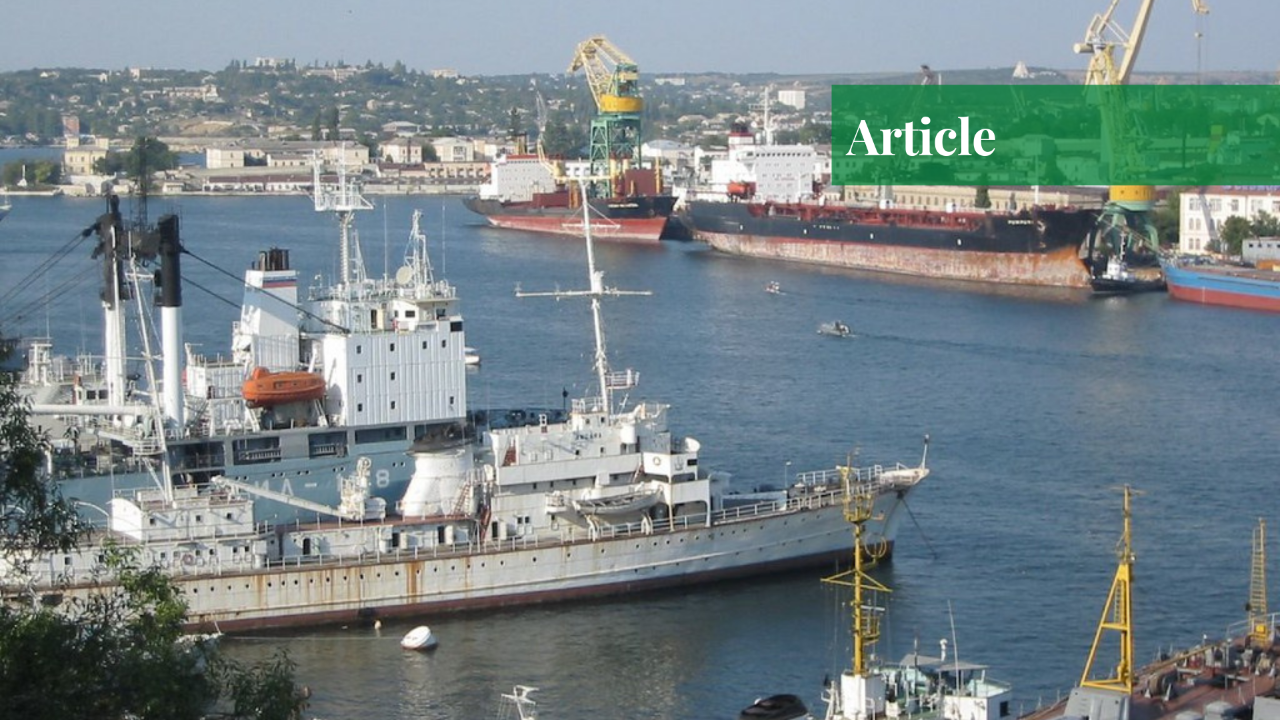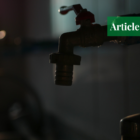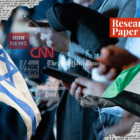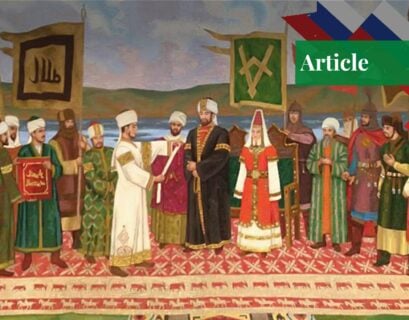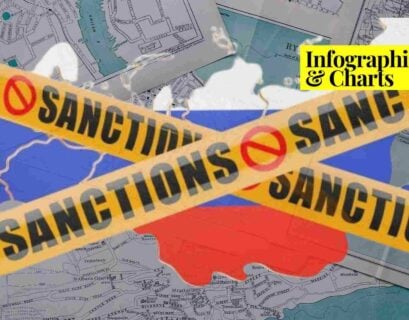Ms Muskan Moazzam is currently studying International Relations at National Defence University, Islamabad.
The Russia-Ukraine Conflict
Background
The Russia-Ukraine conflict was initiated by Russia in February 2014 in the Eastern region of Ukraine which is basically home to former ethnic Russians, who didn’t want to be a part of the European Union. Ukraine wanted to give its full access to its markets to the European Union and cooperate with US companies to develop its natural gas reserves which were taken by Russia as huge threats to its economy.
Thus the civil war started because Yanukovych (the president of Ukraine) mishandled the budget and compelled Ukraine to ask for economic help hence they asked the EU and then Russia which caused political unrest. Those who desired to be on good terms with the EU objected and hence Russia attacked Crimea.
Russia’s military advancement in Ukraine helped Yanukovych’s return to Kyiv and efforts were put to have closer and better relations with Russia. Hence, a civil war erupted in Ukraine, and the Russian military and special intelligence intervened to take control of its strategic position in Crimea. Later on, a referendum was held and with the majority of Crimeans willing to join Russia, it led Russia to annex Crimea again and Crimea adopted to join the Russian federation again.
Imortance of Crimea
History shows that Crimea has been a major contributor to the Soviet Union’s economy from 1920-1991. Another important reason for the annexation was that Russia saw Ukraine’s plans to invest and develop the Crimean gas resource in collaboration with the US as a threat.
Crimea’s Sevastopol port is a famous port of the Black Sea, so if Russia gains control of Crimea which it did in 2014, then Moscow would enjoy control over trade occurring in the Black Sea. As Russia had lost Armenia, Georgia, etcetera in the past which decreased Russian maritime territory toward the Black Sea, getting back Crimea was really important for Russia.
EU Reaction on the Annexation
The EU opposed the Crimean annexation by Russia and accused it of the mass destruction in Crimea. EU accused Moscow of violating international humanitarian law and violating Ukrainian sovereignty. Many European countries also implemented economic sanctions on Russia, Russian companies, and individuals.
The United States had evidence that Russia provided the separatists that hit down a Malaysia Airlines commercial plane over eastern Ukraine on July 17, killing 298 people. The US also halted technology exports to Russia’s deep-water northern Arctic offshore or shale oil production. Russia’s membership in G-8 was also canceled.
In response, Russia responded by banning imports of US and European food companies, and Russian central banks had also raised interests. The sanctions caused a recession in Russia and the IMF had also demonstrated a slowdown in Russia’s growth forecast from 1.3% to 0.2%.
Current Scenario
Currently, high tensions are going between Russia and Ukraine. The EU demands Russia to withdraw its troops. Russia has currently 150000 troops on Ukrainian Border and in Crimea with further escalation possible. The EU is ready to impose sanctions if Russia does not withdraw troops, whereas the Russian president is continuously warning the West not to indulge in this issue and it is not escalation but rather a military exercise.
French and German presidents have clearly stated that they won’t allow new military operations on Ukrainian soil and the US has also emphasized reducing troops reinforcements near the Ukrainian border. France and Germany have helped negotiate a peace deal for eastern Ukraine back in 2015 but all in vain.
Russian stance is that it is nothing but normal military exercises. Russia is also taking measures to counter threats from NATO, for example, Russia is planning to block areas of the Black Sea to foreign ships for 6 months and currently, Russia is pressurizing Ukraine to revive the water supply of Crimea which was cut down back in 2014.
Now the question arises why all EU members have not imposed sanctions on Moscow and why there is a split among EU members on this conflict. Why Germany and France are encouraging diplomatic solutions, rather than imposing sanctions like the rest of the Baltic States? States in this anarchical and world of self-help always look for their national interest.
There are no permanent alliances. If alliances are beneficial for states then states will maintain their alliances, but if scenarios change and alliances are not a win-win game then states can go against their allies. We can say the same is the case with Germany and France who are in constant support of diplomacy and are not sanctioning Russia in this phase of the conflict.
This is because Germany has good relationships with Russia because of the Nord Stream 2 gas pipeline; the sanctions against Russia adopted by the US in April did not include curbs on Nord Stream 2. The project, a highly contentious Russian gas corridor designed to divert transit flows away from Ukraine to Germany, has stirred discontent on both sides of the Atlantic.
Also, Russian exports to Germany in 2018 increased by 35% to $22.1 billion, while imports rose by 12% to $16.9 billion. Similarly, France is already embroiled in many problems and so cannot risk indulging in more conflicts, risking both cooperation and peace. They cannot take a pro-US stance, they want to take an independent stance because they have bilateral trade with Russia.
The trade between Russia and France grew in 2017, increasing by 26% to €13.2 billion. Outside of tax incentive zones, France was the second foreign investor in Russian stock at the end of 2016, behind Germany so France cannot risk that. Now due to US pressure, domestic uprising due to Alexi Navalny’s deteriorating health condition, and criticism from EU members, Russia has ordered the withdrawal of some of the troops from Ukraine by 1 May. This will shape the future relationship between Russia and the EU.
Constructivism Approach
The social world is nothing but a set of ideas and concepts; these are ideas that enable us to analyze things systematically. Constructivism actually means an approach to learning that holds that people actively construct or make their own knowledge from their own experiences and learning In elaborating constructivists’ ideas.
Arendt stated that constructivism believes in the personal construction of meaning by the learner through experience and that meaning is influenced by the interaction of prior knowledge and new events taking place around him. Constructivists emphasize the social construction of reality. Human relations, including international relations, consist of thoughts and ideas and not essentially of material conditions or forces.
According to constructivist philosophy, the social world is not something given, it is created. Similarly, constructivists also negate the neo-realist perspective that material precedes ideas but in fact, in international relations, material power and state interest are fundamentally formed by ideas and social interaction.
In these processes of interaction, the identities and interests of states are created. Hence, according to Alexander Wendt “Anarchy is what states make of it”. Social interaction between states can also lead to more benign and friendly cultures of anarchy. Other than that, constructivism talks about genealogy, such as when anarchy comes and its roots.
Principles
This notion comprises certain principles which support that knowledge is socially constructed and based upon past experiences. Constructivists are of the view that information is built, as opposed to inborn, or latently absorbed. Further, it expresses that learning is an active process, explaining this point further that passive learning makes the student as ‘an unfilled vessel’ to be just loaded up with information.
Constructivism expresses that learners build meaning only through active engagement with the world which can be your experiments or real-world problems. Information may be passively received, but understanding cannot, for it must come from making meaningful connections between prior knowledge, new knowledge, and the processes involved in learning.
Dewey is of the perspective that “learning is a social action” – it is something we do together, in association with one another, instead of a theoretical idea. Moreover, Vygotsky believed that community plays a central role in the process of “making meaning.” For Vygotsky, the earth wherein kids grow up will impact how they think and what they think about.
Along these lines, all educating and learning involve sharing and negotiating socially constituted knowledge. Hence, all these ideas support the concept that “all information is socially developed.” The Constructivist position is that every individual has an unmistakable perspective that is put together concerning its existing information and qualities.
This implies the same exercise, education or movement may bring about various learning by every person which implies that their subjective interpretations may differ from each other. The constructivist theory points out that knowledge can only exist within the human mind, and that it does not have to match any real-world reality.
As mentioned by Discroll, learners will constantly try to develop their own individual mental model of the real world from their perceptions of that world. Therefore, we can conclude that learning as a technique to acquire knowledge exists in the mind.
Conclusion
As constructivism relates to the social realities that are constructed by states and what state makes of the conditional setting, states act diplomatically and show keenness in order to pursue their interests. In the case of the Russia-Ukraine conflict over Crimea, unlike other European member states, France and Germany privately support Russia’s side as these states share heavy trade interests with Russia.
If you want to submit your articles and/or research papers, please check the Submissions page.
The views and opinions expressed in this article/paper are the author’s own and do not necessarily reflect the editorial position of Paradigm Shift.
